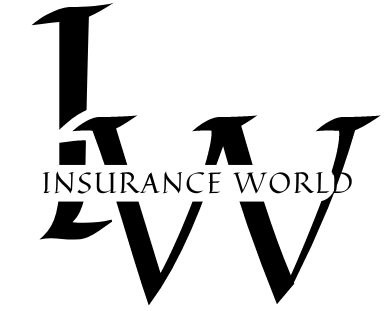Introduction:
Marine insurance is a specialized form of insurance coverage designed to protect vessels, cargo, and maritime interests against the risks and perils of the sea. From cargo ships transporting goods across oceans to pleasure boats cruising along coastlines, marine insurance provides essential financial protection for maritime activities. In this comprehensive guide, we’ll explore everything you need to know about marine insurance, from understanding its importance to navigating coverage options and risk management strategies to ensure smooth sailing for maritime ventures.
SEO
- Understanding Marine Insurance:
- Marine insurance is a type of insurance coverage that provides financial protection for vessels, cargo, marine equipment, and maritime interests against losses or damages resulting from maritime perils, including accidents, collisions, piracy, theft, and natural disasters.
- It covers a wide range of marine-related risks, including hull damage, cargo loss or damage, liability claims, salvage operations, towage expenses, and marine pollution liabilities.
- Marine insurance policies are typically tailored to the specific needs of vessel owners, cargo owners, ship operators, freight forwarders, charterers, and other maritime stakeholders, offering coverage options, terms, and conditions to address their unique risks and exposures.
- Importance of Marine Insurance:
- Financial Protection: Marine insurance provides essential financial protection for vessel owners, cargo owners, and maritime businesses against the potentially catastrophic costs of maritime accidents, losses, or liabilities.
- Compliance Requirements: Marine insurance may be required by law, maritime regulations, or contractual agreements, such as charter parties, cargo contracts, or financing arrangements, to mitigate risks and protect the interests of stakeholders.
- Risk Management: Marine insurance plays a crucial role in risk management for maritime activities, helping vessel owners, cargo owners, and maritime businesses mitigate financial risks, liabilities, and uncertainties associated with maritime operations.
- Types of Marine Insurance Coverage: a. Hull Insurance:
- Hull insurance provides coverage for physical damage to vessels, including ships, boats, yachts, and other watercraft, caused by accidents, collisions, groundings, fire, theft, or other covered perils.It covers repair or replacement costs for hull damage, machinery damage, equipment damage, and other vessel-related losses incurred during maritime operations.
- Cargo insurance provides coverage for goods, merchandise, commodities, or products transported by sea, air, or land, against loss or damage during transit, including loading, unloading, storage, and transportation.It protects cargo owners, shippers, freight forwarders, and logistics providers against financial losses resulting from cargo damage, theft, spoilage, contamination, or other covered perils.
- Liability insurance provides coverage for legal liabilities arising from maritime accidents, incidents, or negligence, including bodily injury, property damage, pollution, wreck removal, salvage operations, and general average contributions.It protects vessel owners, operators, charterers, and maritime businesses from lawsuits, claims, judgments, and legal defense costs incurred in connection with maritime liabilities.
- Freight insurance provides coverage for freight charges or revenues lost due to cargo damage, cargo loss, shipment delays, or other covered perils that result in the inability to deliver goods as contracted.
- It compensates freight forwarders, carriers, shipping lines, and logistics providers for lost revenues, additional expenses, or non-recoverable costs incurred as a result of freight-related losses or disruptions.
- Factors Affecting Marine Insurance Premiums:
- Vessel Type and Value: The type, size, age, and value of the vessel can impact marine insurance premiums, with higher rates for larger, newer, or more valuable vessels.
- Cargo Type and Value: The type, value, and nature of the cargo being transported can influence marine insurance premiums, with higher rates for high-value or high-risk cargoes, such as perishable goods, hazardous materials, or luxury goods.
- Voyage Details: The duration, route, destination, and trading area of the voyage can affect marine insurance premiums, with higher rates for longer voyages, remote destinations, or high-risk maritime routes.
- Loss History: The vessel’s or cargo’s loss history, including past claims, accidents, incidents, or losses, may impact marine insurance premiums based on the perceived risk associated with the insured interest.
- Selecting the Right Marine Insurance Coverage:
- Assess Risk Profile: Evaluate the specific risks and exposures associated with maritime activities, including vessel operations, cargo transportation, port operations, and maritime liabilities, to determine the appropriate coverage needs.
- Review Policy Options: Research and compare marine insurance policies from multiple insurers, reviewing coverage options, premiums, deductibles, and policy terms to find the best fit for your maritime operations.
- Customize Coverage: Tailor your marine insurance coverage to meet your unique needs and risk tolerance, considering factors such as vessel value, cargo type, voyage details, and desired coverage limits.
- Seek Professional Advice: Consult with marine insurance brokers, underwriters, or maritime experts for guidance on selecting the right marine insurance coverage and managing your maritime risks effectively.
- Risk Management Strategies for Maritime Operations:
- Safety Management Systems (SMS): Implement safety management systems to identify, assess, and mitigate maritime risks, including safety protocols, training programs, and incident reporting procedures.
- Emergency Response Plans: Develop and implement emergency response plans for maritime incidents, including salvage operations, pollution response, search and rescue, and medical assistance.
- Compliance with Regulations: Ensure compliance with maritime regulations, international conventions, and industry standards governing vessel operations, safety equipment, pollution prevention, and crew training.
- Risk Transfer Strategies: Consider risk transfer strategies, such as contractual indemnities, liability waivers, insurance clauses, and risk-sharing agreements, to allocate risks effectively among parties involved in maritime operations.
Conclusion:
Marine insurance is a vital component of risk management for vessel owners, cargo owners, and maritime businesses involved in maritime activities. By understanding the importance of marine insurance, selecting the right coverage options, and implementing effective risk management strategies, maritime stakeholders can protect their assets, liabilities, and financial interests against the uncertainties of the sea. With comprehensive marine insurance coverage in place, vessel owners, cargo owners, and maritime businesses can navigate the waters with confidence and resilience, knowing that they are financially protected and prepared to overcome the challenges and risks of maritime operations.

